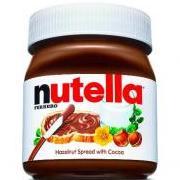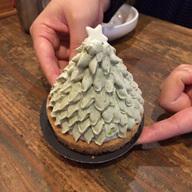-
Posts
81 -
Joined
-
Last visited
-
Days Won
3
Reputation Activity
-
 Left Skew got a reaction from Happytobehere13 in How to Deal with Rejection
Left Skew got a reaction from Happytobehere13 in How to Deal with Rejection
This happens in academia far too often. You could have near-perfect GRE scores, GPA, letters of recommendation, and even fit; yet you're still not selected. Social capital is a powerful thing, I wish there was more research on it. I worry when applying to programs that also have a terminal masters because of how often schools transition (though deserving) students from the masters to PhD program. Faculty of a student that know other faculty. Students finding their POI at a conference and getting face-time...they are playing the game. In IO we learn about how the most random factors like name and handshake can affect your likelihood to receive a job offer, especially when the process is unstructured. The application process is very unstructured: some professors hate the GRE, some love applied experience, some publications, sometimes it's just random in terms of who you apply to. It's hard not to take it personal. Graduate applicants are conscientious; you can tell by the path they've chosen. However, I've never met someone intrinsically motivated that didn't get in. Keep hope. Learn. Find out what the accepted candidates "had" that you didn't. Objectively you may have been much higher on the list, but the list isn't objective; otherwise, a computer would select who gets in.
In reality: I cry and listen to Katy Perry's "The One That Got Away"
-
 Left Skew got a reaction from Dark Chocolate Mocha in How to Deal with Rejection
Left Skew got a reaction from Dark Chocolate Mocha in How to Deal with Rejection
This happens in academia far too often. You could have near-perfect GRE scores, GPA, letters of recommendation, and even fit; yet you're still not selected. Social capital is a powerful thing, I wish there was more research on it. I worry when applying to programs that also have a terminal masters because of how often schools transition (though deserving) students from the masters to PhD program. Faculty of a student that know other faculty. Students finding their POI at a conference and getting face-time...they are playing the game. In IO we learn about how the most random factors like name and handshake can affect your likelihood to receive a job offer, especially when the process is unstructured. The application process is very unstructured: some professors hate the GRE, some love applied experience, some publications, sometimes it's just random in terms of who you apply to. It's hard not to take it personal. Graduate applicants are conscientious; you can tell by the path they've chosen. However, I've never met someone intrinsically motivated that didn't get in. Keep hope. Learn. Find out what the accepted candidates "had" that you didn't. Objectively you may have been much higher on the list, but the list isn't objective; otherwise, a computer would select who gets in.
In reality: I cry and listen to Katy Perry's "The One That Got Away"
-
 Left Skew got a reaction from 1|]010ls10o in How to Deal with Rejection
Left Skew got a reaction from 1|]010ls10o in How to Deal with Rejection
This happens in academia far too often. You could have near-perfect GRE scores, GPA, letters of recommendation, and even fit; yet you're still not selected. Social capital is a powerful thing, I wish there was more research on it. I worry when applying to programs that also have a terminal masters because of how often schools transition (though deserving) students from the masters to PhD program. Faculty of a student that know other faculty. Students finding their POI at a conference and getting face-time...they are playing the game. In IO we learn about how the most random factors like name and handshake can affect your likelihood to receive a job offer, especially when the process is unstructured. The application process is very unstructured: some professors hate the GRE, some love applied experience, some publications, sometimes it's just random in terms of who you apply to. It's hard not to take it personal. Graduate applicants are conscientious; you can tell by the path they've chosen. However, I've never met someone intrinsically motivated that didn't get in. Keep hope. Learn. Find out what the accepted candidates "had" that you didn't. Objectively you may have been much higher on the list, but the list isn't objective; otherwise, a computer would select who gets in.
In reality: I cry and listen to Katy Perry's "The One That Got Away"
-
 Left Skew got a reaction from courtnord in How to Deal with Rejection
Left Skew got a reaction from courtnord in How to Deal with Rejection
This happens in academia far too often. You could have near-perfect GRE scores, GPA, letters of recommendation, and even fit; yet you're still not selected. Social capital is a powerful thing, I wish there was more research on it. I worry when applying to programs that also have a terminal masters because of how often schools transition (though deserving) students from the masters to PhD program. Faculty of a student that know other faculty. Students finding their POI at a conference and getting face-time...they are playing the game. In IO we learn about how the most random factors like name and handshake can affect your likelihood to receive a job offer, especially when the process is unstructured. The application process is very unstructured: some professors hate the GRE, some love applied experience, some publications, sometimes it's just random in terms of who you apply to. It's hard not to take it personal. Graduate applicants are conscientious; you can tell by the path they've chosen. However, I've never met someone intrinsically motivated that didn't get in. Keep hope. Learn. Find out what the accepted candidates "had" that you didn't. Objectively you may have been much higher on the list, but the list isn't objective; otherwise, a computer would select who gets in.
In reality: I cry and listen to Katy Perry's "The One That Got Away"
-
 Left Skew got a reaction from Psych_Law in How to Deal with Rejection
Left Skew got a reaction from Psych_Law in How to Deal with Rejection
This happens in academia far too often. You could have near-perfect GRE scores, GPA, letters of recommendation, and even fit; yet you're still not selected. Social capital is a powerful thing, I wish there was more research on it. I worry when applying to programs that also have a terminal masters because of how often schools transition (though deserving) students from the masters to PhD program. Faculty of a student that know other faculty. Students finding their POI at a conference and getting face-time...they are playing the game. In IO we learn about how the most random factors like name and handshake can affect your likelihood to receive a job offer, especially when the process is unstructured. The application process is very unstructured: some professors hate the GRE, some love applied experience, some publications, sometimes it's just random in terms of who you apply to. It's hard not to take it personal. Graduate applicants are conscientious; you can tell by the path they've chosen. However, I've never met someone intrinsically motivated that didn't get in. Keep hope. Learn. Find out what the accepted candidates "had" that you didn't. Objectively you may have been much higher on the list, but the list isn't objective; otherwise, a computer would select who gets in.
In reality: I cry and listen to Katy Perry's "The One That Got Away"
-
 Left Skew got a reaction from gillis_55 in Data on Grad Cafe Psychology Results
Left Skew got a reaction from gillis_55 in Data on Grad Cafe Psychology Results
Hello everyone,
I've seen quite a bit of chatter around the timing of results, and the answers are obscure. I wanted to provide my services, and give you all some extra data. The beauty of grad cafe is that it is one of the most (if not the most) centralized data source for graduate students. Some data examples: What schools are most popular, what degrees, applicant metrics, dates of results, etc. Yet, I've yet to find someone that uses this information to help those applying.
Until now...
I used R (for those unfamiliar) to scrape the grad cafe results data related to psychology. I returned about 35000 records. There were a lot of un-tidy text strings (e.g., PhD and Ph.D.), especially in relation to program-title and institution; however, that is a project for another day. Data regarding dates and decisions did seem clean enough for me to analyze it and turn it into something nice for you all.
So what is it....?
Here is a PDF based on the results of all Psychology students (over 35000) since the origin of grad cafe. The first 3 tables show the 10 most common dates (by count) for getting an interview, getting accepted, and getting rejected ? . I would do relative frequency and should've...maybe tomorrow.
Then a longitudinal line graph (which shows these decisions throughout the year)
Finally, one that focuses more on the "critical-period" when most decisions are made.
Conclusion
This was a piecemeal job that I should be done in R Markdown. I'll link my code at the end. Similar methods could be used to look at the "most popular" programs, probability of acceptance by degree type or program type, average GRE score for accepted candidates, and the list goes on. If anyone wants a csv of the dataset I used, please feel free to message me. I also welcome critiques and suggestions. I wish you all the best.
R code here
-
 Left Skew got a reaction from HigherEdPsych in Data on Grad Cafe Psychology Results
Left Skew got a reaction from HigherEdPsych in Data on Grad Cafe Psychology Results
After a short hiatus (to maintain my sanity) I've updated some things!
Cleaned Institution and Program - the past few days have been rough. I've realized what kind of garbage fire the Institution and program data from the results survey is. I emailed grad cafe in hopes they would standardize the text inputs for the aforementioned columns. You'd be surprised at how many different ways someone can type in "UCLA". Hopefully the data is more accurate but there is still a lot to do.
Added more graphics. I've split the decision plots by clinical, not-clinical, and everyone combined because who cares about clinical applicants? Kidding. Their apps tend to be due a lot sooner, you can see this in the plots. I've also added result by day of the week thanks to statisticalsleuth's suggestion. Further there is a table of the top schools that adds Rejection postings as a % of total postings (I removed postings involving other).
R nerds: added a function file behind the R code so the script wouldn't be so overwhelming...though it's still overwhelming. This file is necessary for running the script (see the script here). I've also added an index of schools and programs for the string matching algorithm. ALL OF THESE FILES NEED TO BE IN YOUR Working Directory for the procedure to run. Finally I wanted to thank everyone for being supportive and giving me ideas. Best of luck during interviews! I've attached the PDF. You can also view it here.
It's almost over....
Grad Cafe Decisions.pdf
-
 Left Skew got a reaction from Nut-ella in Data on Grad Cafe Psychology Results
Left Skew got a reaction from Nut-ella in Data on Grad Cafe Psychology Results
I wish you were a professor, preferably at one of the school in my signature. In all honesty, thank you for being so kind. I wish you the best of luck too. People love Nutella.
-
 Left Skew got a reaction from ZachOxford in Data on Grad Cafe Psychology Results
Left Skew got a reaction from ZachOxford in Data on Grad Cafe Psychology Results
After a short hiatus (to maintain my sanity) I've updated some things!
Cleaned Institution and Program - the past few days have been rough. I've realized what kind of garbage fire the Institution and program data from the results survey is. I emailed grad cafe in hopes they would standardize the text inputs for the aforementioned columns. You'd be surprised at how many different ways someone can type in "UCLA". Hopefully the data is more accurate but there is still a lot to do.
Added more graphics. I've split the decision plots by clinical, not-clinical, and everyone combined because who cares about clinical applicants? Kidding. Their apps tend to be due a lot sooner, you can see this in the plots. I've also added result by day of the week thanks to statisticalsleuth's suggestion. Further there is a table of the top schools that adds Rejection postings as a % of total postings (I removed postings involving other).
R nerds: added a function file behind the R code so the script wouldn't be so overwhelming...though it's still overwhelming. This file is necessary for running the script (see the script here). I've also added an index of schools and programs for the string matching algorithm. ALL OF THESE FILES NEED TO BE IN YOUR Working Directory for the procedure to run. Finally I wanted to thank everyone for being supportive and giving me ideas. Best of luck during interviews! I've attached the PDF. You can also view it here.
It's almost over....
Grad Cafe Decisions.pdf
-
 Left Skew got a reaction from neuronfire94 in Abstaining from alcohol on interview weekend?
Left Skew got a reaction from neuronfire94 in Abstaining from alcohol on interview weekend?
I'm just going to drink beforehand...
...water. Hydration is good for cognitive processing.
-
 Left Skew got a reaction from naturevnurture in Abstaining from alcohol on interview weekend?
Left Skew got a reaction from naturevnurture in Abstaining from alcohol on interview weekend?
I'm just going to drink beforehand...
...water. Hydration is good for cognitive processing.
-
 Left Skew got a reaction from cupofsugar in Data on Grad Cafe Psychology Results
Left Skew got a reaction from cupofsugar in Data on Grad Cafe Psychology Results
After a short hiatus (to maintain my sanity) I've updated some things!
Cleaned Institution and Program - the past few days have been rough. I've realized what kind of garbage fire the Institution and program data from the results survey is. I emailed grad cafe in hopes they would standardize the text inputs for the aforementioned columns. You'd be surprised at how many different ways someone can type in "UCLA". Hopefully the data is more accurate but there is still a lot to do.
Added more graphics. I've split the decision plots by clinical, not-clinical, and everyone combined because who cares about clinical applicants? Kidding. Their apps tend to be due a lot sooner, you can see this in the plots. I've also added result by day of the week thanks to statisticalsleuth's suggestion. Further there is a table of the top schools that adds Rejection postings as a % of total postings (I removed postings involving other).
R nerds: added a function file behind the R code so the script wouldn't be so overwhelming...though it's still overwhelming. This file is necessary for running the script (see the script here). I've also added an index of schools and programs for the string matching algorithm. ALL OF THESE FILES NEED TO BE IN YOUR Working Directory for the procedure to run. Finally I wanted to thank everyone for being supportive and giving me ideas. Best of luck during interviews! I've attached the PDF. You can also view it here.
It's almost over....
Grad Cafe Decisions.pdf
-
 Left Skew got a reaction from kierkegoth in Data on Grad Cafe Psychology Results
Left Skew got a reaction from kierkegoth in Data on Grad Cafe Psychology Results
After a short hiatus (to maintain my sanity) I've updated some things!
Cleaned Institution and Program - the past few days have been rough. I've realized what kind of garbage fire the Institution and program data from the results survey is. I emailed grad cafe in hopes they would standardize the text inputs for the aforementioned columns. You'd be surprised at how many different ways someone can type in "UCLA". Hopefully the data is more accurate but there is still a lot to do.
Added more graphics. I've split the decision plots by clinical, not-clinical, and everyone combined because who cares about clinical applicants? Kidding. Their apps tend to be due a lot sooner, you can see this in the plots. I've also added result by day of the week thanks to statisticalsleuth's suggestion. Further there is a table of the top schools that adds Rejection postings as a % of total postings (I removed postings involving other).
R nerds: added a function file behind the R code so the script wouldn't be so overwhelming...though it's still overwhelming. This file is necessary for running the script (see the script here). I've also added an index of schools and programs for the string matching algorithm. ALL OF THESE FILES NEED TO BE IN YOUR Working Directory for the procedure to run. Finally I wanted to thank everyone for being supportive and giving me ideas. Best of luck during interviews! I've attached the PDF. You can also view it here.
It's almost over....
Grad Cafe Decisions.pdf
-
 Left Skew got a reaction from kalman_gain in Data on Grad Cafe Psychology Results
Left Skew got a reaction from kalman_gain in Data on Grad Cafe Psychology Results
Hello everyone,
I've seen quite a bit of chatter around the timing of results, and the answers are obscure. I wanted to provide my services, and give you all some extra data. The beauty of grad cafe is that it is one of the most (if not the most) centralized data source for graduate students. Some data examples: What schools are most popular, what degrees, applicant metrics, dates of results, etc. Yet, I've yet to find someone that uses this information to help those applying.
Until now...
I used R (for those unfamiliar) to scrape the grad cafe results data related to psychology. I returned about 35000 records. There were a lot of un-tidy text strings (e.g., PhD and Ph.D.), especially in relation to program-title and institution; however, that is a project for another day. Data regarding dates and decisions did seem clean enough for me to analyze it and turn it into something nice for you all.
So what is it....?
Here is a PDF based on the results of all Psychology students (over 35000) since the origin of grad cafe. The first 3 tables show the 10 most common dates (by count) for getting an interview, getting accepted, and getting rejected ? . I would do relative frequency and should've...maybe tomorrow.
Then a longitudinal line graph (which shows these decisions throughout the year)
Finally, one that focuses more on the "critical-period" when most decisions are made.
Conclusion
This was a piecemeal job that I should be done in R Markdown. I'll link my code at the end. Similar methods could be used to look at the "most popular" programs, probability of acceptance by degree type or program type, average GRE score for accepted candidates, and the list goes on. If anyone wants a csv of the dataset I used, please feel free to message me. I also welcome critiques and suggestions. I wish you all the best.
R code here
-
 Left Skew got a reaction from lre in Fun Post: Best and Craziest Backup Plans
Left Skew got a reaction from lre in Fun Post: Best and Craziest Backup Plans
Best and Craziest: Find a 9-to-5 job. Spend my nights crying myself to sleep, but capture my tears. I'll save my tears until I can fill a bath tub. Proceed to bath in my tears, but record it and post it on social media. The post will go viral, igniting my YouTube career. In my videos, I'll call out all those who've rejected me in the past; though I will still cry myself to sleep at night.
-
 Left Skew got a reaction from strongs13 in Fun Post: Best and Craziest Backup Plans
Left Skew got a reaction from strongs13 in Fun Post: Best and Craziest Backup Plans
Best and Craziest: Find a 9-to-5 job. Spend my nights crying myself to sleep, but capture my tears. I'll save my tears until I can fill a bath tub. Proceed to bath in my tears, but record it and post it on social media. The post will go viral, igniting my YouTube career. In my videos, I'll call out all those who've rejected me in the past; though I will still cry myself to sleep at night.
-
 Left Skew reacted to Sparkybob in Fall 2018 I/O Psy
Left Skew reacted to Sparkybob in Fall 2018 I/O Psy
Sorry for the double post but just heard back from Ohio Athens and got an interview! I was just hoping for 1 interview this cycle so I am glad I reached that goal! Best of luck to everyone else.
-
 Left Skew got a reaction from getfrozty in Data on Grad Cafe Psychology Results
Left Skew got a reaction from getfrozty in Data on Grad Cafe Psychology Results
Hello everyone,
I've seen quite a bit of chatter around the timing of results, and the answers are obscure. I wanted to provide my services, and give you all some extra data. The beauty of grad cafe is that it is one of the most (if not the most) centralized data source for graduate students. Some data examples: What schools are most popular, what degrees, applicant metrics, dates of results, etc. Yet, I've yet to find someone that uses this information to help those applying.
Until now...
I used R (for those unfamiliar) to scrape the grad cafe results data related to psychology. I returned about 35000 records. There were a lot of un-tidy text strings (e.g., PhD and Ph.D.), especially in relation to program-title and institution; however, that is a project for another day. Data regarding dates and decisions did seem clean enough for me to analyze it and turn it into something nice for you all.
So what is it....?
Here is a PDF based on the results of all Psychology students (over 35000) since the origin of grad cafe. The first 3 tables show the 10 most common dates (by count) for getting an interview, getting accepted, and getting rejected ? . I would do relative frequency and should've...maybe tomorrow.
Then a longitudinal line graph (which shows these decisions throughout the year)
Finally, one that focuses more on the "critical-period" when most decisions are made.
Conclusion
This was a piecemeal job that I should be done in R Markdown. I'll link my code at the end. Similar methods could be used to look at the "most popular" programs, probability of acceptance by degree type or program type, average GRE score for accepted candidates, and the list goes on. If anyone wants a csv of the dataset I used, please feel free to message me. I also welcome critiques and suggestions. I wish you all the best.
R code here
-
 Left Skew got a reaction from TheFork in Data on Grad Cafe Psychology Results
Left Skew got a reaction from TheFork in Data on Grad Cafe Psychology Results
Hello everyone,
I've seen quite a bit of chatter around the timing of results, and the answers are obscure. I wanted to provide my services, and give you all some extra data. The beauty of grad cafe is that it is one of the most (if not the most) centralized data source for graduate students. Some data examples: What schools are most popular, what degrees, applicant metrics, dates of results, etc. Yet, I've yet to find someone that uses this information to help those applying.
Until now...
I used R (for those unfamiliar) to scrape the grad cafe results data related to psychology. I returned about 35000 records. There were a lot of un-tidy text strings (e.g., PhD and Ph.D.), especially in relation to program-title and institution; however, that is a project for another day. Data regarding dates and decisions did seem clean enough for me to analyze it and turn it into something nice for you all.
So what is it....?
Here is a PDF based on the results of all Psychology students (over 35000) since the origin of grad cafe. The first 3 tables show the 10 most common dates (by count) for getting an interview, getting accepted, and getting rejected ? . I would do relative frequency and should've...maybe tomorrow.
Then a longitudinal line graph (which shows these decisions throughout the year)
Finally, one that focuses more on the "critical-period" when most decisions are made.
Conclusion
This was a piecemeal job that I should be done in R Markdown. I'll link my code at the end. Similar methods could be used to look at the "most popular" programs, probability of acceptance by degree type or program type, average GRE score for accepted candidates, and the list goes on. If anyone wants a csv of the dataset I used, please feel free to message me. I also welcome critiques and suggestions. I wish you all the best.
R code here
-
 Left Skew reacted to April12345 in Those who have received interviews, what made you stand out?
Left Skew reacted to April12345 in Those who have received interviews, what made you stand out?
This is so helpful!
I haven't heard from any programs yet, but I feel peace knowing that I was very direct and specific with my research interests. Ultimately, fit is most important and if my POIs don't think my interests jive with theirs, there isn't much I can do. ??♀️
-
 Left Skew got a reaction from selizabeth in Those who have received interviews, what made you stand out?
Left Skew got a reaction from selizabeth in Those who have received interviews, what made you stand out?
What did your faculty, lab, or person of interest (POI) attribute to your success? If you don't have that information, what do you think did it? You don't have to be humble.
-
 Left Skew got a reaction from cognitiveDecline in Data on Grad Cafe Psychology Results
Left Skew got a reaction from cognitiveDecline in Data on Grad Cafe Psychology Results
Hello everyone,
I've seen quite a bit of chatter around the timing of results, and the answers are obscure. I wanted to provide my services, and give you all some extra data. The beauty of grad cafe is that it is one of the most (if not the most) centralized data source for graduate students. Some data examples: What schools are most popular, what degrees, applicant metrics, dates of results, etc. Yet, I've yet to find someone that uses this information to help those applying.
Until now...
I used R (for those unfamiliar) to scrape the grad cafe results data related to psychology. I returned about 35000 records. There were a lot of un-tidy text strings (e.g., PhD and Ph.D.), especially in relation to program-title and institution; however, that is a project for another day. Data regarding dates and decisions did seem clean enough for me to analyze it and turn it into something nice for you all.
So what is it....?
Here is a PDF based on the results of all Psychology students (over 35000) since the origin of grad cafe. The first 3 tables show the 10 most common dates (by count) for getting an interview, getting accepted, and getting rejected ? . I would do relative frequency and should've...maybe tomorrow.
Then a longitudinal line graph (which shows these decisions throughout the year)
Finally, one that focuses more on the "critical-period" when most decisions are made.
Conclusion
This was a piecemeal job that I should be done in R Markdown. I'll link my code at the end. Similar methods could be used to look at the "most popular" programs, probability of acceptance by degree type or program type, average GRE score for accepted candidates, and the list goes on. If anyone wants a csv of the dataset I used, please feel free to message me. I also welcome critiques and suggestions. I wish you all the best.
R code here
-
 Left Skew got a reaction from ZachOxford in Data on Grad Cafe Psychology Results
Left Skew got a reaction from ZachOxford in Data on Grad Cafe Psychology Results
Hello everyone,
I've seen quite a bit of chatter around the timing of results, and the answers are obscure. I wanted to provide my services, and give you all some extra data. The beauty of grad cafe is that it is one of the most (if not the most) centralized data source for graduate students. Some data examples: What schools are most popular, what degrees, applicant metrics, dates of results, etc. Yet, I've yet to find someone that uses this information to help those applying.
Until now...
I used R (for those unfamiliar) to scrape the grad cafe results data related to psychology. I returned about 35000 records. There were a lot of un-tidy text strings (e.g., PhD and Ph.D.), especially in relation to program-title and institution; however, that is a project for another day. Data regarding dates and decisions did seem clean enough for me to analyze it and turn it into something nice for you all.
So what is it....?
Here is a PDF based on the results of all Psychology students (over 35000) since the origin of grad cafe. The first 3 tables show the 10 most common dates (by count) for getting an interview, getting accepted, and getting rejected ? . I would do relative frequency and should've...maybe tomorrow.
Then a longitudinal line graph (which shows these decisions throughout the year)
Finally, one that focuses more on the "critical-period" when most decisions are made.
Conclusion
This was a piecemeal job that I should be done in R Markdown. I'll link my code at the end. Similar methods could be used to look at the "most popular" programs, probability of acceptance by degree type or program type, average GRE score for accepted candidates, and the list goes on. If anyone wants a csv of the dataset I used, please feel free to message me. I also welcome critiques and suggestions. I wish you all the best.
R code here
-
 Left Skew got a reaction from psytillidie in Data on Grad Cafe Psychology Results
Left Skew got a reaction from psytillidie in Data on Grad Cafe Psychology Results
I fixed the "closer look" plot- ordering from Nov to May.
Also, all I added a Program Type table on page 2. Be skeptical of all the program/school info due to the lack of clean data. I'm working in a string-matching function now, in hopes that I can get more accurate numbers related to those variables.
I don't want people to worry if they missed a peak day. I estimate around half of the sample is Clinical Psych, which (to my knowledge) tend to have a few November deadlines, this will skew the data a bit.
Updated version
Thanks everyone for working on this with me!
-
 Left Skew got a reaction from PNWqueen in Data on Grad Cafe Psychology Results
Left Skew got a reaction from PNWqueen in Data on Grad Cafe Psychology Results
Hello everyone,
I've seen quite a bit of chatter around the timing of results, and the answers are obscure. I wanted to provide my services, and give you all some extra data. The beauty of grad cafe is that it is one of the most (if not the most) centralized data source for graduate students. Some data examples: What schools are most popular, what degrees, applicant metrics, dates of results, etc. Yet, I've yet to find someone that uses this information to help those applying.
Until now...
I used R (for those unfamiliar) to scrape the grad cafe results data related to psychology. I returned about 35000 records. There were a lot of un-tidy text strings (e.g., PhD and Ph.D.), especially in relation to program-title and institution; however, that is a project for another day. Data regarding dates and decisions did seem clean enough for me to analyze it and turn it into something nice for you all.
So what is it....?
Here is a PDF based on the results of all Psychology students (over 35000) since the origin of grad cafe. The first 3 tables show the 10 most common dates (by count) for getting an interview, getting accepted, and getting rejected ? . I would do relative frequency and should've...maybe tomorrow.
Then a longitudinal line graph (which shows these decisions throughout the year)
Finally, one that focuses more on the "critical-period" when most decisions are made.
Conclusion
This was a piecemeal job that I should be done in R Markdown. I'll link my code at the end. Similar methods could be used to look at the "most popular" programs, probability of acceptance by degree type or program type, average GRE score for accepted candidates, and the list goes on. If anyone wants a csv of the dataset I used, please feel free to message me. I also welcome critiques and suggestions. I wish you all the best.
R code here









